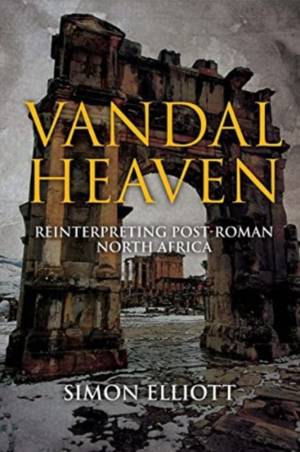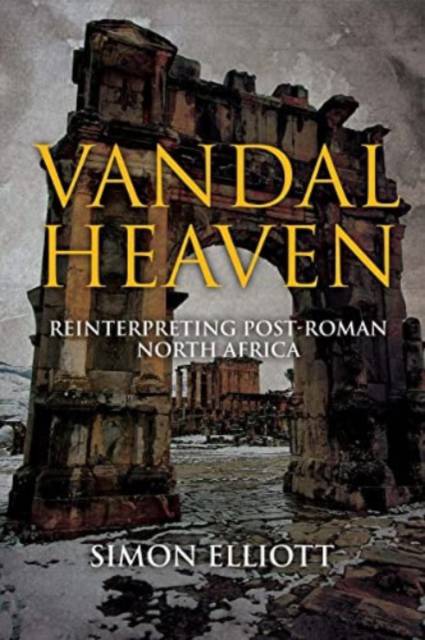
- Retrait gratuit dans votre magasin Club
- 7.000.000 titres dans notre catalogue
- Payer en toute sécurité
- Toujours un magasin près de chez vous
- Retrait gratuit dans votre magasin Club
- 7.000.000 titres dans notre catalogue
- Payer en toute sécurité
- Toujours un magasin près de chez vous
41,95 €
+ 83 points
Description
A new study that challenges previous interpretations of post-Roman North Africa.
North Africa was one of the richest parts of the Roman Empire, the agricultural powerhouse of the Mediterranean. It was also home to some of the emperor's biggest imperial estates, and prosperous cities of all kinds. Its loss to the Vandals in the first half of the 5th century AD was the mortal blow which both precipitated the fall of the western empire, and set the eastern empire back for decades. Its reconquest then became an obsession with each new emperor in Constantinople. Time and again the eastern Romans failed in this goal, until Justinian I finally succeeded in the AD 530s. Although North Africa's restoration to the world of Rome only lasted a short time, it has widely been regarded as a positive development.
However, new research--published here for the first time--shows that post-Roman North Africa thrived under the Vandals. To them it was Vandal heaven, a place where they found a way as the new incumbent elite to live comfortably alongside the late Roman inhabitants, despite their different interpretations of Christianity. Together, the two cultures flourished.
When the eastern Romans - now styled Byzantines - returned, they weren't welcome. This is evidenced in the surviving built environments of this new period of North African history, namely chains of small forts along the frontier and interior, where the Byzantines used mounted troops to keep an unhappy local population under control.
Dr Elliott not only presents a brand-new interpretation of post-Roman North Africa, but makes the case that the Arab Conquest was so successful in this region because the Byzantine overlords were so unpopular. Furthermore his argument explains how the region today came to be part of the Arab world, in contrast to the regions along the northern Mediterranean freeboard, which maintain their Roman-ness to this day.
North Africa was one of the richest parts of the Roman Empire, the agricultural powerhouse of the Mediterranean. It was also home to some of the emperor's biggest imperial estates, and prosperous cities of all kinds. Its loss to the Vandals in the first half of the 5th century AD was the mortal blow which both precipitated the fall of the western empire, and set the eastern empire back for decades. Its reconquest then became an obsession with each new emperor in Constantinople. Time and again the eastern Romans failed in this goal, until Justinian I finally succeeded in the AD 530s. Although North Africa's restoration to the world of Rome only lasted a short time, it has widely been regarded as a positive development.
However, new research--published here for the first time--shows that post-Roman North Africa thrived under the Vandals. To them it was Vandal heaven, a place where they found a way as the new incumbent elite to live comfortably alongside the late Roman inhabitants, despite their different interpretations of Christianity. Together, the two cultures flourished.
When the eastern Romans - now styled Byzantines - returned, they weren't welcome. This is evidenced in the surviving built environments of this new period of North African history, namely chains of small forts along the frontier and interior, where the Byzantines used mounted troops to keep an unhappy local population under control.
Dr Elliott not only presents a brand-new interpretation of post-Roman North Africa, but makes the case that the Arab Conquest was so successful in this region because the Byzantine overlords were so unpopular. Furthermore his argument explains how the region today came to be part of the Arab world, in contrast to the regions along the northern Mediterranean freeboard, which maintain their Roman-ness to this day.
Spécifications
Parties prenantes
- Auteur(s) :
- Editeur:
Contenu
- Nombre de pages :
- 240
- Langue:
- Anglais
Caractéristiques
- EAN:
- 9781636242873
- Date de parution :
- 31-03-24
- Format:
- Livre relié
- Format numérique:
- Genaaid
- Dimensions :
- 156 mm x 232 mm
- Poids :
- 544 g







